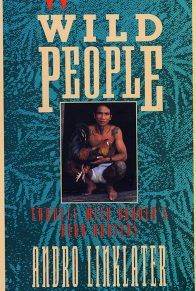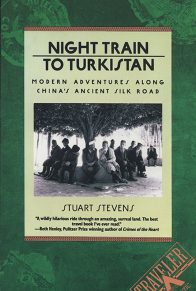“Edith Mirante is like Edgar Snow reincarnated as a biker chick with a taste for Dewar’s cut with bear’s blood. Burmese Looking Glass is a contribution to the literature of human rights and to the literature of high adventure.” —Los Angeles Times Book Review
“If you ever wondered what Marco Polo would do in the 20th century, if you have ever dreamed of cutting the ropes that hold down the balloon of adventure, Edith Mirante’s stories will speak to you. . . . Despite the essential romanticism of her life and her vision, Ms. Mirante for the most part avoids overly romanticizing her subject. Her writing is clear, cool and occasionally poetic. The warts are all intact whether her subject is alcoholic generals, Thai police or expatriate artists. . . . In the end, it is perhaps Ms. Mirante’s acceptance of things foreign that brings them home to Western readers. Who can say that the ritual tattoos she got from a tribal spirit leader did not keep her safe from harm?” —Gayle Reaves, The Dallas Morning News
“An American artist-adventurer has written an absorbing book about her experiences living with Shan and Karen rebels in Burma’s remote mountains, where rebels, opium warlords and jade smugglers hold sway. The author founded Project Maje to publicize Burma’s human rights violations.” —Donald Zagoria, Foreign Affairs
“A hip and lively narrative of human-rights activism in Burma. . . . Her eye for setting a scene and her gift for evoking rebels, brigands, hippies, and sinister security forces pull the reader into a Terry and the Pirates world where those who tread quickly get ‘burnt out by wars, companion fatigue, survivor guilt, hepatitis.’ A dramatic but caring book in which Mirante’s blithe tone doesn’t disguise her earnest concern for the worsening conditions faced by the Burmese hill tribes.” —Kirkus Reviews
“Human rights concerns don’t automatically suggest art and adventure, yet artist Mirante draws sustenance from this heady blend. A week’s tour in the exotic natural and cultural world of Burma captivated her, but she settled for painting in neighboring Thailand, avoiding the political restrictions of dictator Ne Win. She was so close to the border, however, that her curiosity, appreciation of tribal art, and high-risk style drew her into a concern about the attacks and political maneuvers against the hill tribes. Mastery of Asian politics, languages, and self-defense eventually pushed her painting aside, and she assumed the role of liaison between the scattered rebel forces, with access to generals, forbidden territories, and drug traffickers. In one border crossing she marched with rebel troops delivering arms while she collected evidence on illegal use of U.S.-supplied defoliant 2,4-D, maintaining pressure on Washington until the chemical was banned. Danger, however, doesn’t dim her images—of personalities, land, dress, and temples. The artist’s eye remains open, adding another dimension to concern for others.” —Booklist













